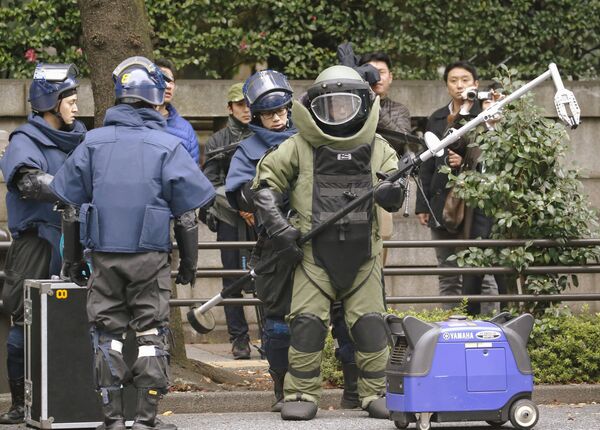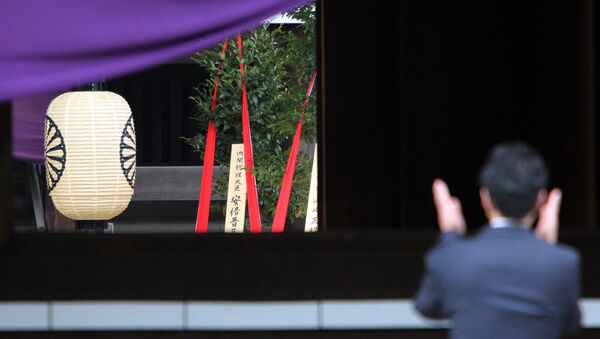TOKYO (Sputnik) — Last month, an explosion occurred at the Yasukuni Shrine. Nobody was injured in the explosion, but the ceiling and a wall of a public bathroom at the shrine complex were damaged. Police suspected that an explosion could have been a politically motivated attack.

The investigation revealed that the suspect came to Japan two days before the incident, and left the country immediately after it, the Kyodo news agency reported.
On Wednesday, the suspect returned to Japan and was arrested, according to the agency.
The Yasukuni shrine was founded by Emperor Meiji in 1869. It lists about two and half million civilians and government officials who died in wars between 1867 and 1951, as well as about 1,000 war criminals, 14 of which are considered to be A-Class, or those internationally acknowledged to have participated in a joint conspiracy to start and wage war.
The site is often regarded as a symbol of Japan’s past militarism by other Asian nations. Cases of material damage to the complex were registered in 2013 and 2011.
Visits to the controversial shrine by Japanese politicians have sparked protests from China and South Korea in connection with the memories of Japanese occupation and colonialism before and during World War II.


